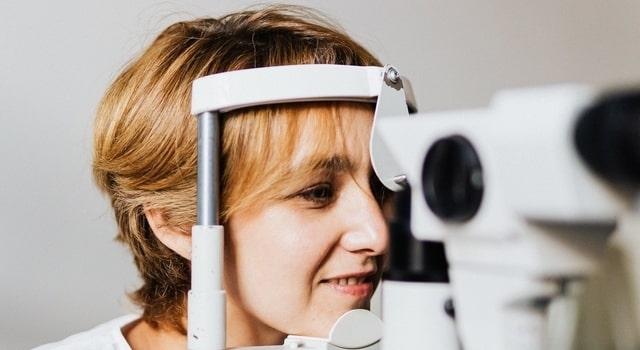
Regular eye check-ups are essential for maintaining good vision and detecting potential eye problems early. Many people wait until they experience noticeable symptoms before requesting an eye exam. However, early detection through routine checks can prevent vision loss and ensure optimal eye health.
At , we believe in proactive eye care to help you maintain clear vision and prevent eye conditions from progressing unnoticed. Here are some key indicators that it may be time for you to request a thorough eye check-up.
Common Eye Symptoms You Shouldn’t Ignore
Blurry or Distorted Vision
If you notice your vision becoming blurry or distorted, it’s a clear sign that you need a comprehensive eye exam. This could indicate refractive errors like nearsightedness, farsightedness, astigmatism, or more serious conditions such as macular degeneration.
Frequent Headaches
Frequent headaches, especially after reading or using digital devices, can indicate eye strain or an undiagnosed vision problem. A comprehensive eye exam can help identify the cause and provide solutions.
Difficulty Seeing at Night
Struggling to see in low light or at night is a common sign of cataracts or other vision impairments. An eye exam can assess the health of your eyes and determine the best course of action.
Eye Pain or Discomfort
You should not ignore persistent eye pain, discomfort, or a feeling of pressure around the eyes. These symptoms can indicate underlying issues such as glaucoma or infections that require prompt attention.
Double Vision
Experiencing double vision can be disorienting. It is often a sign of serious eye conditions such as cataracts, muscle imbalances, or neurological issues. A comprehensive exam is necessary to diagnose and treat the problem.
Frequent Squinting
If you find yourself squinting frequently to see clearly, it’s a sign that your vision may not be as sharp as it should be. Squinting can temporarily improve focus but may indicate a need for corrective lenses or other treatments.
Changes in Color Vision
Noticing changes in how you perceive colors can indicate several eye health issues, including cataracts and macular degeneration. Comprehensive eye exams include tests for color vision and can identify these changes early.
Sensitivity to Light
Increased sensitivity to light, known as photophobia, can be a symptom of various eye conditions, from dry eye syndrome to more serious diseases. An eye exam can help your eye doctor determine the cause and recommend appropriate treatments.
Seeing Floaters or Flashes
Floaters or flashes of light in your vision can be normal. However, a sudden increase or change can indicate retinal detachment or other serious eye problems. A comprehensive eye exam can provide the necessary evaluation.
Family History of Eye Disease
If you have a family history of eye diseases such as glaucoma, cataracts, or macular degeneration, it’s important to have regular comprehensive eye exams. Early detection and monitoring are key to managing hereditary conditions.
Request Your Comprehensive Eye Exam
Recognizing these signs and requesting a comprehensive eye exam can help maintain your vision and overall eye health. At Dean Optical, we aim to provide thorough eye exams that ensure your eyes receive the best care possible. Don’t wait for symptoms to worsen. Request your comprehensive eye exam to protect your vision and maintain optimal eye health.
